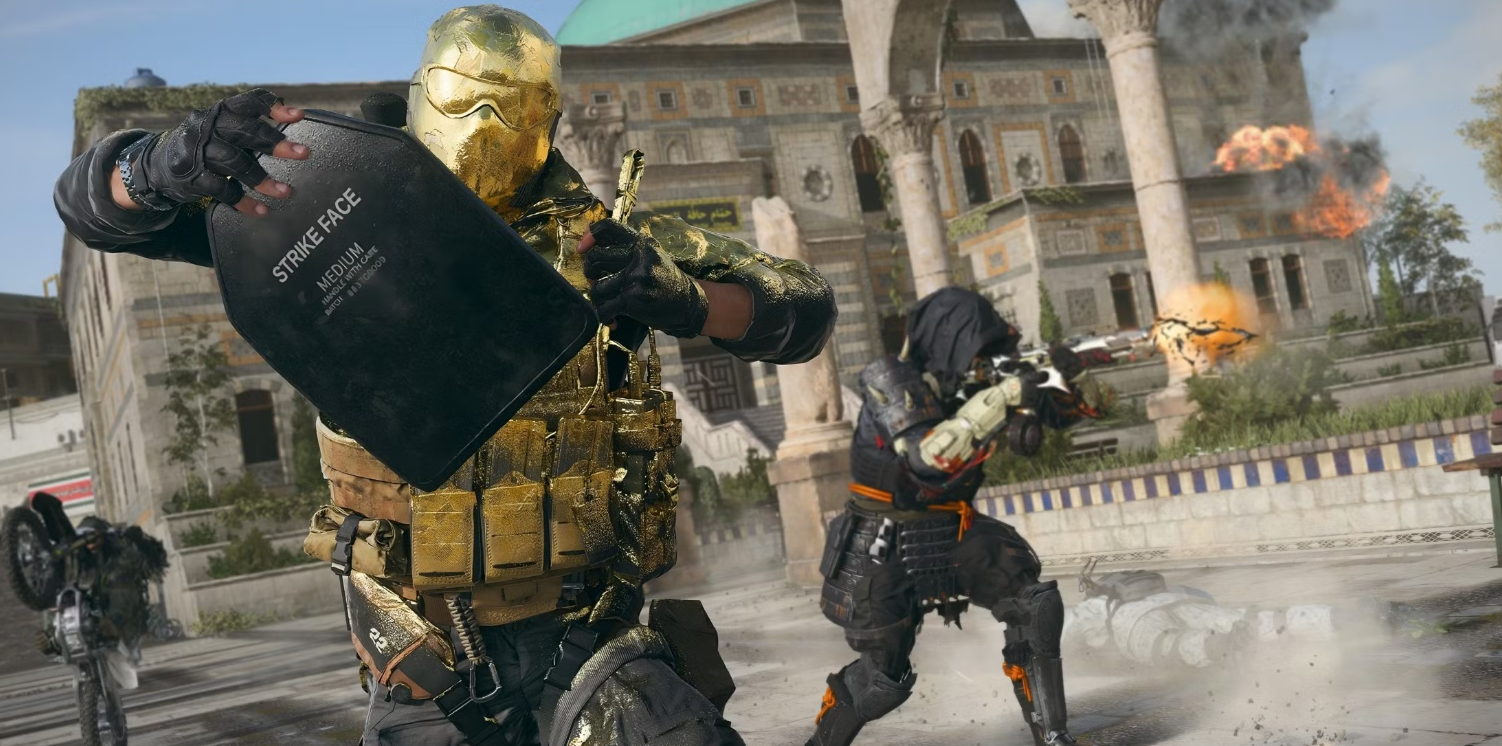Microsoft Cancels Exciting Xbox Game Pass Offer Just Before Black Ops 6 Release

Microsoft has recently made a surprising decision to remove a key option from Xbox Game Pass, and this change comes just days before the highly anticipated launch of Call of Duty: Black Ops 6. For many gamers, Xbox Game Pass has been a great way to access a wide range of titles at a fraction of the cost of buying games outright. The subscription service is particularly appealing to budget-conscious players who want to experience the latest games without breaking the bank. The removed option could have allowed subscribers to play Call of Duty: Black Ops 6 for much less than its retail price, making it more accessible for those who may not want to invest heavily in gaming. With the game’s launch imminent, this decision has left many fans feeling frustrated and disappointed, as they were looking forward to enjoying the new installment of the beloved franchise through their subscription.
As the gaming community eagerly awaits the release, the timing of Microsoft’s decision raises questions about its commitment to providing affordable gaming options. Many players rely on Game Pass to explore new titles, and the removal of this feature may push some to reconsider their subscription. In a landscape where gaming costs continue to rise, the need for accessible options has never been more critical. With the excitement surrounding Call of Duty: Black Ops 6, players are left wondering how they will adapt to this sudden change. The decision may not only affect individual gamers but could also impact the overall launch experience for the game, as fewer players may be able to join in on the action at launch. As the gaming community reacts, it will be interesting to see how Microsoft addresses these concerns and whether they will offer any alternatives to help players get the most out of their gaming experience.
Table of Contents
Recent Changes to Xbox Game Pass: What They Mean for Gamers
In recent months, Xbox Game Pass has faced a series of changes that have sparked mixed reactions among its user base. Despite these unpopular adjustments, including a notable price increase that caught the attention of government regulators, the service continues to be regarded as one of the best value propositions in gaming today. For a relatively low monthly fee, subscribers can access a vast library of premium titles across multiple platforms. This includes Xbox consoles, PCs, and mobile devices through Xbox Cloud Gaming, allowing gamers to play on the go. One of the standout features of Xbox Game Pass is its extensive catalog, which includes some of the year’s biggest releases. Titles from renowned franchises, such as Call of Duty, have become available thanks to Microsoft’s strategic acquisition of Activision Blizzard and other major players in the gaming industry. This move not only enhances the library of games available to subscribers but also solidifies Microsoft’s position as a leader in the gaming market.
However, recent developments have raised concerns among gamers. Microsoft made the decision to quietly eliminate the option for new and returning subscribers to pay just one dollar for a 14-day trial of Xbox Game Pass on consoles. This trial was particularly appealing for those who were hesitant about committing to a full subscription. The removal of this offer means that potential subscribers now have only the Core, Standard, and Ultimate tiers to choose from, all of which require a higher initial investment without the opportunity to try out the service at a reduced rate. This change could significantly impact new users and those who have lapsed in their subscriptions. Many gamers rely on trial periods to explore a service’s offerings before making a financial commitment. By discontinuing the one-dollar trial, Microsoft may unintentionally alienate potential subscribers who were looking forward to testing the waters. The absence of a free or discounted trial option could lead to a decrease in the number of new sign-ups, as players may be more hesitant to invest in a service without knowing if it aligns with their gaming preferences.
Moreover, the timing of these changes is particularly concerning. With the impending release of major titles like Call of Duty: Black Ops 6, many players are eager to dive into the latest adventures and multiplayer experiences. However, the lack of accessible entry points could hinder their ability to engage with the game at launch. For a service that positions itself as a gateway to gaming, these restrictions may send a mixed message to the community. The gaming landscape is evolving rapidly, with subscription services becoming increasingly popular. Players are looking for ways to access a wide range of games without the hefty price tags associated with purchasing individual titles. Xbox Game Pass has thrived in this environment by offering a diverse lineup and frequent updates to its library. Yet, as Microsoft raises prices and removes introductory offers, the appeal of the service may start to wane, particularly among budget-conscious gamers. Additionally, the community’s response to these changes has been mixed. While some long-time subscribers appreciate the value that Xbox Game Pass continues to provide, others express frustration over the lack of affordable entry options. This dissatisfaction could translate into a drop in user engagement, as players may seek alternatives or simply decide to wait for sales or promotions before committing to a subscription.
Looking ahead, Microsoft faces the challenge of balancing profitability with user satisfaction. The company must consider how its pricing strategies and service offerings align with the expectations of its subscriber base. Maintaining a competitive edge in the gaming market will require ongoing evaluation of user feedback and a commitment to providing value. In summary, while Xbox Game Pass remains a strong contender in the world of gaming subscriptions, recent changes—particularly the removal of the one-dollar trial—have raised concerns about accessibility and value. As gamers eagerly anticipate new releases like Call of Duty: Black Ops 6, it will be crucial for Microsoft to address these issues and ensure that the service continues to meet the diverse needs of its audience. The future of Xbox Game Pass may depend on how well it adapts to these challenges, balancing the desire for revenue with the importance of keeping its community engaged and satisfied.
Microsoft Eliminates $1 Xbox Game Pass Subscription Offer Before Black Ops 6 Launch
The $1 Xbox Game Pass subscription option could have been an incredible opportunity for gamers eager to experience one of the most anticipated shooters of the year. This brief, low-cost subscription would have allowed players to dive into the action, complete the Black Ops 6 campaign, and explore multiplayer modes—all within a 14-day window. For many, it was a chance to enjoy high-quality gaming without a hefty upfront investment. However, with the removal of this option, players now face the reality of having to pay the full retail price of $70 USD for the game or subscribe to the Ultimate tier at $20 USD per month. The decision to eliminate the $1 subscription deal has drawn significant backlash from the gaming community. Fans who were already disgruntled by recent price hikes and changes to their entitlements within Xbox Game Pass viewed this move as yet another instance of Microsoft prioritizing profits over player satisfaction. Many expressed frustration on social media platforms, labeling it a “cash grab” that disregards the interests of the gaming community. This sentiment reflects a broader concern among gamers about the increasing costs associated with gaming, especially as more companies shift towards subscription models.
Conversely, some players adopted a more business-oriented perspective. They argued that Microsoft is simply looking to maximize revenue during a critical launch window. From a corporate standpoint, it makes sense to capitalize on the excitement surrounding Black Ops 6, especially given the substantial investments the company has made in acquiring major game publishers like Activision. This strategy aims to ensure that Microsoft reaps the financial rewards of its investments and maintains its competitive edge in the gaming market. Additionally, a noteworthy point raised by some community members was that the removal of the $1 subscription option might not have dramatically impacted access to Black Ops 6. Only Xbox Game Pass Ultimate subscribers typically enjoy day-one access to new releases, meaning that the short trial period would have likely been limited to the Standard tier. This tier does not provide access to the latest titles upon their release, which would have rendered the $1 deal less beneficial for those specifically looking to play Black Ops 6 at launch.
This situation highlights the complexities and challenges of subscription models in the gaming industry. While services like Xbox Game Pass offer a vast library of games and the convenience of playing across multiple platforms, they also come with conditions that can frustrate potential users. As gaming continues to evolve, companies are grappling with the balance between profitability and customer satisfaction. Players are increasingly vocal about their preferences, and companies must navigate these demands while also considering their financial bottom line. The broader implications of this change also touch on consumer behavior in the gaming market. With the rising costs of game development, publishers are exploring various monetization strategies, including subscriptions, in-game purchases, and seasonal content. This shift is reshaping how players interact with games and what they expect in terms of value. Gamers are becoming more discerning about how they spend their money and are likely to seek out services that offer the best value for their investment. Moreover, the competitive landscape of the gaming industry is more intense than ever. With various platforms vying for consumer attention, companies like Microsoft are under pressure to deliver compelling offers that attract and retain subscribers. The removal of the $1 subscription option could potentially drive some gamers to explore alternatives, such as PlayStation Plus or other subscription services, in search of better value.
As the launch of Call of Duty: Black Ops 6 approaches, it remains to be seen how this change will affect sales and player engagement. Will gamers be willing to pay the full price, or will they seek other options? The response from the community will likely influence future decisions from Microsoft and other gaming companies as they continue to refine their subscription offerings and navigate the evolving landscape of the gaming industry. In conclusion, while the removal of the $1 Xbox Game Pass subscription option may seem like a small change, it resonates deeply within the gaming community. As players voice their opinions and concerns, companies must listen and adapt to ensure they meet the expectations of their audience. The balance between profitability and customer satisfaction will be crucial as the gaming industry continues to evolve in the coming years.




